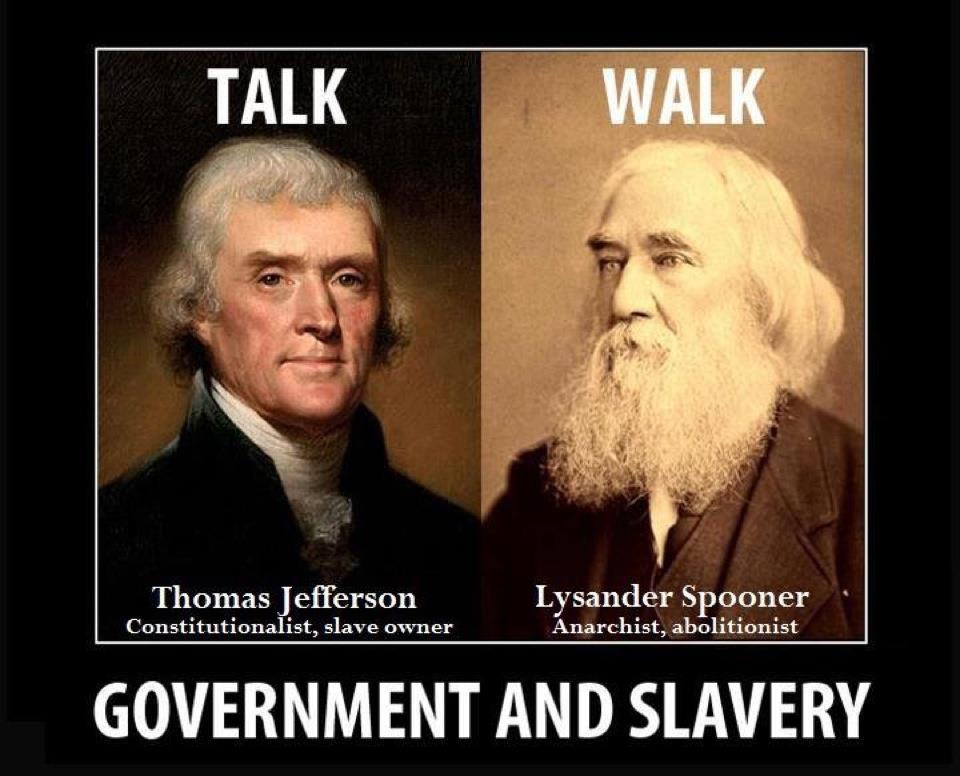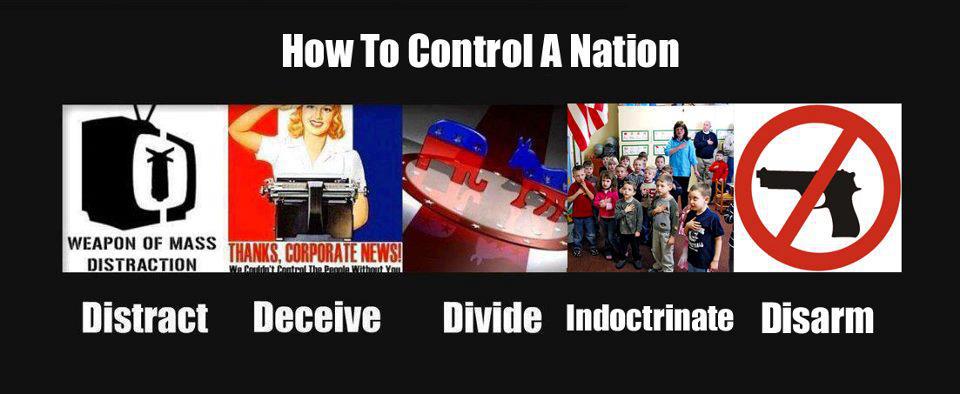With the upcoming election the most common scare tactic being used by those who advocate gun owners support Romney are possible upcoming Supreme Court nominations. For those who don’t know the president of the United States gets the privilege of nominating Supreme Court justices and those justices serve a lifelong term. Currently Romney’s camp are trying to scare people into voting for Romney by saying Obama will likely nominate Eric Holder as a Supreme Court justice. Honestly, if possible Supreme Court nominations weren’t on the horizon these people would likely come up with some of justification of why you should vote for Romney.
I’m not going to sit here and tell you who to vote for, that’s your business if you even bother to vote at all. What I want to consider is the Supreme Court itself and its implications for liberty. Many of the same people encouraging gun owners to vote for Romney are also individuals who think the Constitution is some kind of biblical document that was brought down by Moses from Mount Sinai. I hold a different view, I don’t actually like the Constitution all that much. Yes, it is better than most constitutions but I find the Article of Confederation far more desirable than the United States Constitution. Part of the reason I dislike the Constitution involves the judicial branch and the Supreme Court itself. The United States Constitution establishes the judicial branch in Article III:
Section. 1.
The judicial Power of the United States shall be vested in one supreme Court, and in such inferior Courts as the Congress may from time to time ordain and establish. The Judges, both of the supreme and inferior Courts, shall hold their Offices during good Behaviour, and shall, at stated Times, receive for their Services a Compensation, which shall not be diminished during their Continuance in Office.
Section. 2.
The judicial Power shall extend to all Cases, in Law and Equity, arising under this Constitution, the Laws of the United States, and Treaties made, or which shall be made, under their Authority;–to all Cases affecting Ambassadors, other public Ministers and Consuls;–to all Cases of admiralty and maritime Jurisdiction;–to Controversies to which the United States shall be a Party;–to Controversies between two or more States;– between a State and Citizens of another State,–between Citizens of different States,–between Citizens of the same State claiming Lands under Grants of different States, and between a State, or the Citizens thereof, and foreign States, Citizens or Subjects.
In all Cases affecting Ambassadors, other public Ministers and Consuls, and those in which a State shall be Party, the supreme Court shall have original Jurisdiction. In all the other Cases before mentioned, the supreme Court shall have appellate Jurisdiction, both as to Law and Fact, with such Exceptions, and under such Regulations as the Congress shall make.
The Trial of all Crimes, except in Cases of Impeachment, shall be by Jury; and such Trial shall be held in the State where the said Crimes shall have been committed; but when not committed within any State, the Trial shall be at such Place or Places as the Congress may by Law have directed.
Section. 3.
Treason against the United States, shall consist only in levying War against them, or in adhering to their Enemies, giving them Aid and Comfort. No Person shall be convicted of Treason unless on the Testimony of two Witnesses to the same overt Act, or on Confession in open Court.
The Congress shall have Power to declare the Punishment of Treason, but no Attainder of Treason shall work Corruption of Blood, or Forfeiture except during the Life of the Person attainted.
From this single article of the Constitution has arisen a court that has the power to rule what rights individuals do and do not have. For example, the Second Amendment guarantees “the right of the people to keep and bear Arms, shall not be infringed.” To laymen that wording seems very straightforward, everybody enjoys the right to own and use firearms without any infringement agains that right. The Supreme Court has ruled otherwise, allowing restrictions against this supposed right.
When the Supreme Court makes a ruling it becomes the law of the land. If the Supreme Court ruled that the state held the right to confiscate any firearm at any time would people role over and submit to the state agents going from house to house taking arms? Those who subscribe to the idea that the Supreme Court is the ultimate authority of the matter of individual rights should, less they be hypocrites. To individuals like myself, who believe in the absolute right of self-ownership, the idea that nine men wearing robes can determine what my rights are is comical.
What if the Supreme Court did rule that the right to keep and bear arms was a collective right that could be violated by the state? It’s an interesting thing to consider. If you don’t recognize the state’s authority the ruling of the Supreme Court becomes irrelevant outside of the fact violence will be brought against your person if you should violated their decree. If you do recognize the state’s authority then you must also accept their ruling and comply with it believing it is right.
Those who recognize the absolute authority of the Supreme Court must then admit that they believe rights are not rights but state granted privileges. At any point these privileges could be taken away by the ruling of a mere five people (since Supreme Court rulings are always based on the majority out of nine). If one judge had ruled against incorporation of the Second Amendment every state would have the right to prohibit the ownership of firearms. If that had been the case then the Second Amendment, which states the right to keep and bear arms can not be infringed, would have been a temporary right stripped by a single Supreme Court ruling. In essence, the five judges who ruled in favor of incorporation each held the power to strip a supposed right from the people of the United States. Think about that for a minute, five people in this country held the power to determine whether or not those of us living in the United States had a right.
To me, the idea that five individual can legitimately determine what my rights are is absurd. Could the Supreme Court then rule that the First Amendment isn’t actually applicable? They did, in seven court cases. If the Supreme Court had rules opposing in any single mentioned case we would not enjoy the supposed rights we do today.
Believing that the Supreme Court holds some kind of authority necessarily means you believe rights are not only privileges but temporary privileges. Even though the Second Amendment has been incorporated by the Supreme Court people are afraid that one of Obama’s nominees may reverse that decision in another case. Stop and think about that for a moment. The Supreme Court holds the power to determine what rights you do and don’t have and that determination can be changed at any time. Why isn’t anybody pissed about that? Aren’t rights supposed to be absolute? Doesn’t the Constitution protect our rights? What happens when a clause in the Bill or Rights opposes a ruling by a court established by the Constitution?
I don’t think people spend enough time considering topics like this. Perhaps we should spend less time worrying about Supreme Court nominations and more time getting pissed off at the fact our rights are temporary privileges that can be granted to taken by the state whenever five individuals in robes decide so. Frankly I don’t give a shit who is on the Supreme Court because I find that entire court to be a sham. They no more hold a right to determine what my rights are than I have a right to determine what your rights are.
Before somebody posts a comment saying, “Yeah the situation sucks but it is what it is so you have to vote for Romney” let me just say this: no I don’t. The situation sucks because people kept voting for the “lesser” or two evils. Every time somebody justified voting for the “lesser” evil they have been responsible for the situation we face today. I’m not going to be part of the problem and I sure as the hell am not going to be the guy who has to explain to his children why their life sucks so much. Do you know what really sucks? People who cow to the state. Something isn’t so just because the state says it. If the state said you had to kill your neighbor would you kill your neighbor? What if the state decided to reverse its decision on abolishing slavery, would you help round up fellow human beings to be sold as slaves? How far are you willing to be pushed until you finally say “No?” I’ve already reached that point, I’m down cowing to the state, and I’m no longer going to be an obedient little dog whose only decision is whether I should put a checkmark next to the (R) or (D). I urge those of you reading this to join me. Whether you vote for the Libertarian Party, Constitution Part, Green Party, Independent Party, or don’t vote at all is irrelevant to me. My only request is that you think and stop relying on the state to do your thinking for you.
If the Supreme Court rules that I no longer have the right to keep and bear arms I will disregard that ruling just as I would disregard any ruling stating I no longer have the freedom of speech. Because of this I don’t care who the justices are nor will allow myself to be suckered into voting for Romney based on what amounts to a ghost story.


